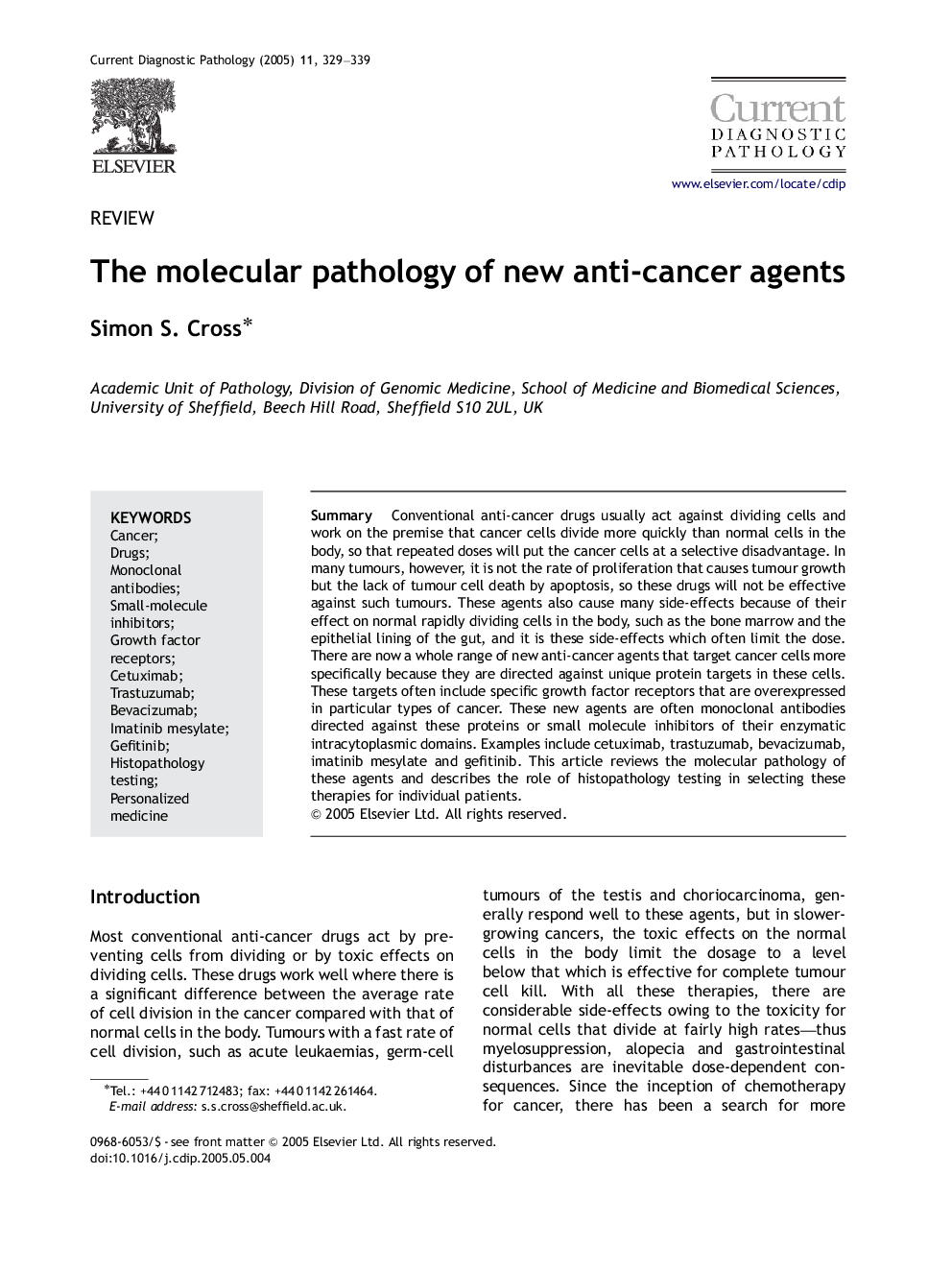| Article ID | Journal | Published Year | Pages | File Type |
|---|---|---|---|---|
| 9364956 | Current Diagnostic Pathology | 2005 | 11 Pages |
Abstract
Conventional anti-cancer drugs usually act against dividing cells and work on the premise that cancer cells divide more quickly than normal cells in the body, so that repeated doses will put the cancer cells at a selective disadvantage. In many tumours, however, it is not the rate of proliferation that causes tumour growth but the lack of tumour cell death by apoptosis, so these drugs will not be effective against such tumours. These agents also cause many side-effects because of their effect on normal rapidly dividing cells in the body, such as the bone marrow and the epithelial lining of the gut, and it is these side-effects which often limit the dose. There are now a whole range of new anti-cancer agents that target cancer cells more specifically because they are directed against unique protein targets in these cells. These targets often include specific growth factor receptors that are overexpressed in particular types of cancer. These new agents are often monoclonal antibodies directed against these proteins or small molecule inhibitors of their enzymatic intracytoplasmic domains. Examples include cetuximab, trastuzumab, bevacizumab, imatinib mesylate and gefitinib. This article reviews the molecular pathology of these agents and describes the role of histopathology testing in selecting these therapies for individual patients.
Keywords
Related Topics
Health Sciences
Medicine and Dentistry
Pathology and Medical Technology
Authors
Simon S. Cross,
